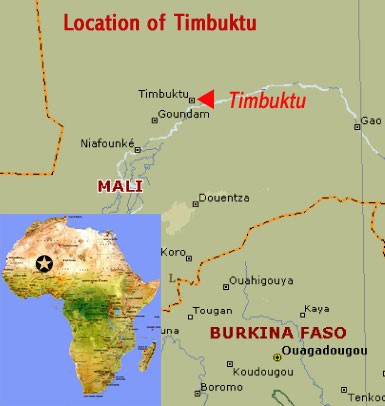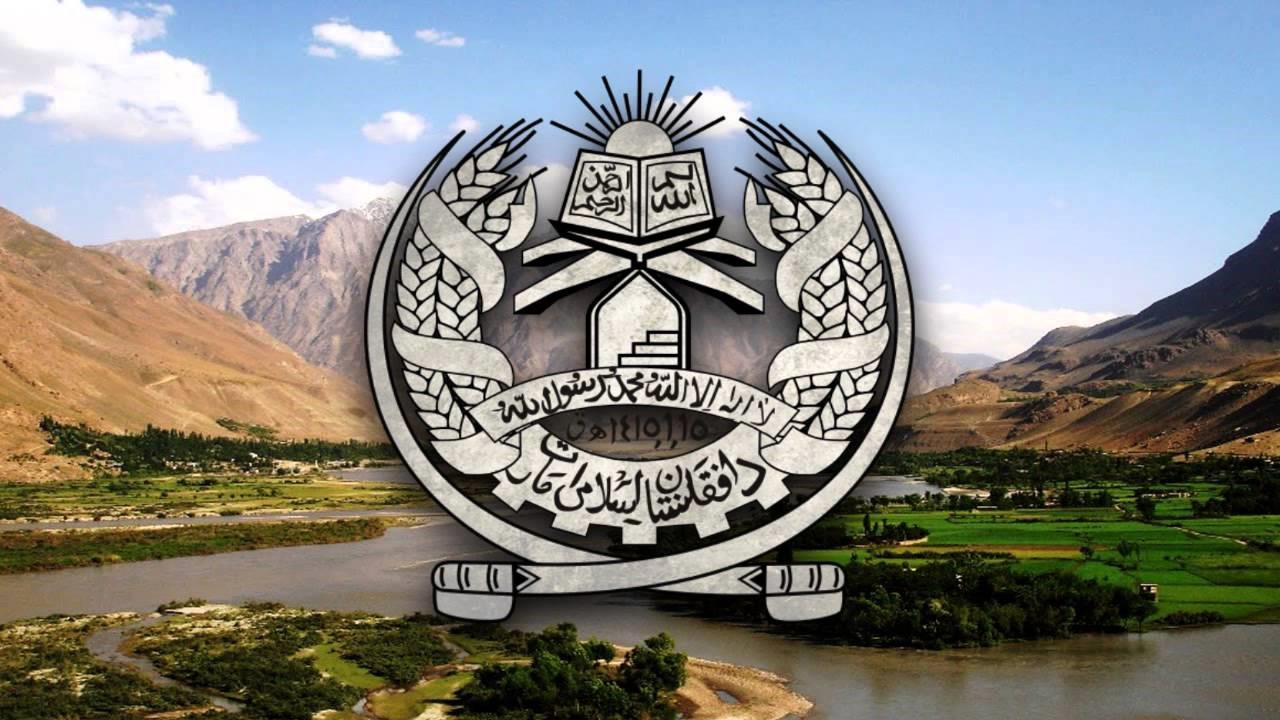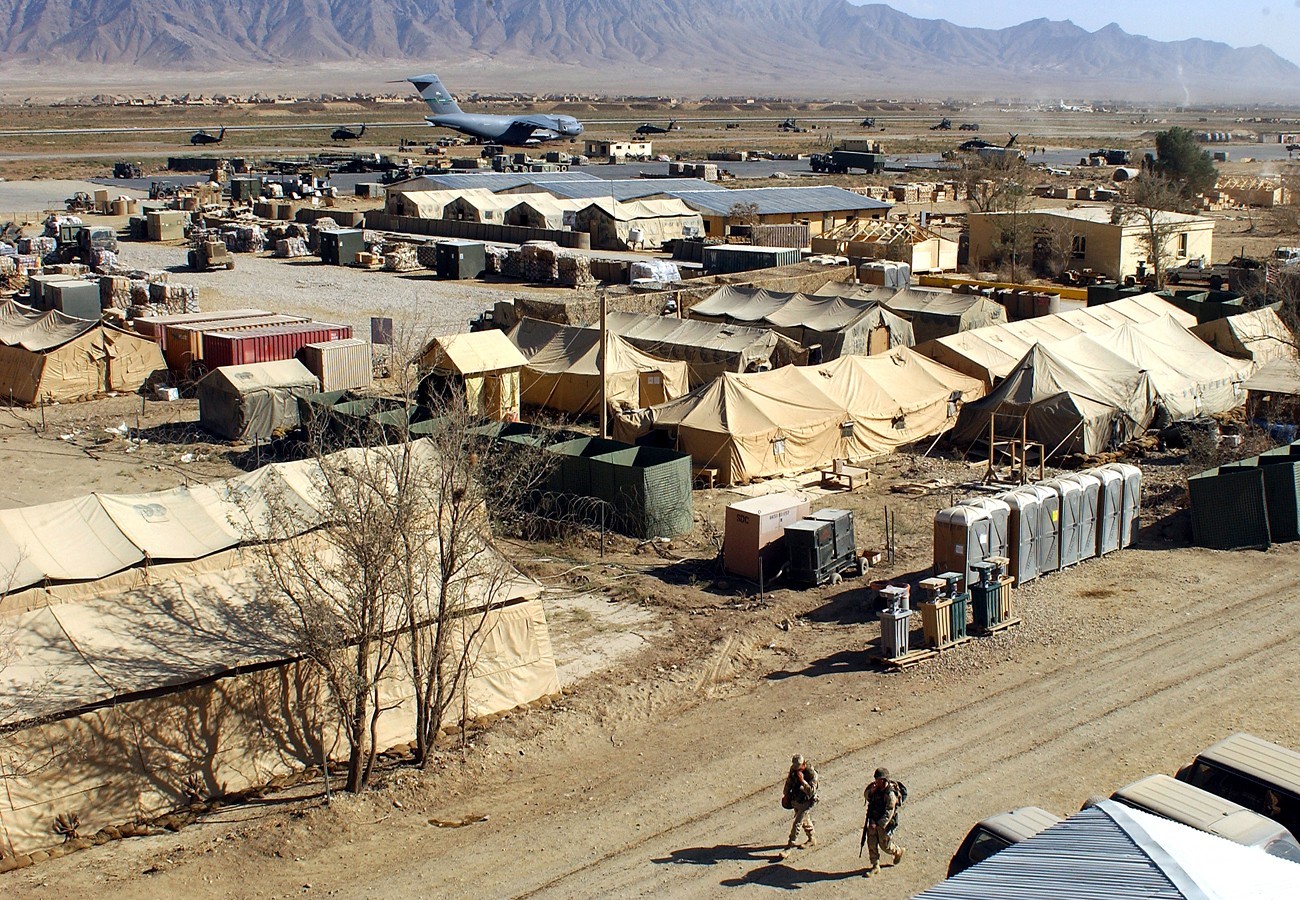Andrew McGregor
February 10, 2012
Khartoum scored a major victory in its nearly nine-year-old conflict with Darfur rebels with the December 24 killing of Dr. Khalil Ibrahim, leader of Darfur’s Justice and Equality Movement (JEM), the best armed and most organized of the Darfur rebel groups. Khalil rose to the top of Sudan’s most-wanted list after his fighters made an audacious cross-country raid on Khartoum/Omdurman, bringing Sudan’s civil war to the national capital for the first time. Though the raid was repulsed in the streets of Omdurman, the bold attack and the military’s failure to rally to the regime left the government badly shaken. [1]

Rebels of the Justice and Equality Movement (JEM)
The JEM leader’s death will most likely represent a major setback for the newly formed Sudan Revolutionary Front (SRF), a broad-based armed opposition movement that includes the Sudan People’s Liberation Movement/Army – North (SPLM/A – N), the Beja Congress of east Sudan and three Darfur rebel movements, the Justice and Equality Movement (JEM), the largely Fur Sudan Liberation Movement/Army – Abdel Wahid (SLM/A – AW), and the largely Zaghawa Sudan Liberation Movement – Minni Minnawi (SLM/A – MM).
Who Killed Khalil Ibrahim?
Government sources reported Khalil was killed along with 30 of his men in the Wad Banda area of Northern Kordofan during a clash with the Sudan Armed Forces (SAF) The SAF claimed to have been chasing a JEM force of 300 fighters and 140 vehicles since December 19 (Sudan Vision, December 25, 2011; Sudan News Agency [SUNA], December 25, 2011). SAF sources said the final clash was preceded by a battle at the village of Um Jar near the border between North Kordofan and North Darfur. JEM forces then passed through Wadi Hawar before engaging in fierce fighting with Kababish Arabs near Um Badir in northern Kordofan. Local officials claimed the surviving JEM forces were trying to southeastward to South Sudan through the Bahr al-Arab region (Sudanese Media Center [SMC], January 2).
However, ccording to senior JEM filed commander Sulayman Sandal Hagar, Khalil and a bodyguard were killed by a precision strike by three rockets while the JEM leader was sleeping in his vehicle (Sudan Vision, January 2). A leading JEM official, Mahmoud Suleiman, said the movement did not yet want to expose the parties behind the assassination, but were in possession of “threads of the plot and our knowledge of the countries involved in the conspiracy and the plane that shot the lethal missile” (Sudan Tribune, December 31, 2011). The one party that could be ruled out, according to Suleiman, was the Sudanese Armed Forces (SAF), which did not have the technical capacity or capability of launching a jet-fighter missile strike of such precision. Suleiman also described reports of battles between the SAF and Khalil’s column of 140 vehicles just prior to his death as “novel lies,” insisting that no fighting had taken place before the assassination. The JEM official suggested that JEM would take steps to open “a criminal case against those who participated in the planning and executing the plot,” leading to the “identification of the real perpetrators or those implicated and involved in the heinous crime.”
Khalil’s interim successor, al-Tahir al-Faki also suggested that “all indications point to the act being non-Sudanese,” noting that at one point, a JEM group came under intensive fire from Sudan’s ancient Antonov bombers (actually Soviet-era cargo planes converted to carry crude bombs) for six weeks while suffering only a single minor injury (al-Hayat, December 30). Sudan’s small inventory of Chinese and Russian-made jet fighters is not known to operate at night. There is some evidence that Sudan operates a number of small Chinese and Iranian reconnaissance/surveillance drones, but does not operate tactical UAVs with weapons systems.
The purpose of the large movement of JEM fighters under Khalil’s personal command was not immediately clear. A London-based JEM spokesman, Jibril Adam Bilal, announced that the convoy was on its way to the capital to make another attempt to forcibly topple the regime led by President Omar al-Bashir, wanted by the International Criminal Court for war crimes and crimes against humanity in Darfur (Sudan Tribune, December 22, 2011). While JEM claimed that Khalil was leading his forces in a strike on Khartoum at the time of his death, Khartoum claimed the JEM leader was actually leading his forces into South Sudan (Sudan Tribune, December 25, 2011).
SAF spokesmen stated on January 3 that the SAF had detected 79 JEM vehicles carrying 350 combatants crossing into South Sudan on December 28, a claim that brought denials from Juba (Sudan Vision, January 6). The JEM forces were allegedly allowed to set up a training camp in Bahr al-Ghazal while the South Sudanese provided treatment for their wounded (Sudan Tribune, January 3). Juba has denied all such reports and reiterated its position that no members of any rebel group fighting against the Khartoum government were on South Sudanese soil (Sudan Tribune, January 19). State-backed media sources claimed in mid-November, 2011 that 400 JEM rebels had arrived in South Sudan after receiving “intensive military training” in Israel but provided no evidence (Sudan Vision, November 13, 2011). Khartoum later charged Israel with supplying JEM with weapons and vehicles transferred to France and Chad (SMC, December 27, 2011). Khartoum perceives the deep involvement of many international Jewish organizations in Darfur “anti-genocide” campaigns to be orchestrated by Israel as part of an attempt to create insecurity in the Arab world.
JEM serves a political purpose for Khartoum as a tool in pressuring the newly independent South Sudan through complaints to the United Nations Security Council. Allegations that the SPLM is harboring JEM rebels provides some justification for Khartoum’s sponsorship of Southern dissident movements. Khartoum has also made two previous complaints to the Security Council against South Sudan for allegedly supporting military units of the SPLM/A-N, which operates in South Kordofan and Blue Nile State.
The Reaction
In Khartoum, government officials raised security levels and used teargas to drive away crowds of mourners who were gathering at the home of Khalil’s family in suburban Khartoum (Sudan Tribune, December 25). The government also closed two newspapers, al-Wan and Rai al-Shabb, for publishing interviews with Khalil or Jibril Ibrahim or publishing statements of support for Khalil from members of Hassan al-Turabi’s Popular Congress Party (PCP), where Khalil Ibrahim began his political career (Sudan Tribune, January 14). The PCP recently drew the attention of Sudan’s National Intelligence and Security Services (NISS) over its production of a document outlining various scenarios for regime change in Sudan, including the possibilities of a military coup or a nation-wide popular uprising (Sudan Tribune, January 8).

Muhammad Bahr Hamdin
Always eager to promote internal dissension in the ranks of the rebels, government sources provided unconfirmed reports that prominent JEM members from the Masalit and Erenga tribes of West Darfur had been “liquidated” for expressing satisfaction at the death of Khalil Ibrahim while other commanders were arrested on charges of complicity with JEM dissident Muhammad Bahr Hamdin (SMC, January 7). Hamdin was dismissed as the deputy leader of JEM in September, 2011 after being charged with planning a coup against the JEM leadership (Radio Dabanga, September 25, 2011). Elements of JEM from the Masalit, Erenga, Meidob and Berti tribes were fiercely repressed in January 2008 after they took arms to protest the exclusion of members of these tribes from the JEM leadership dominated by members of the Kobe Zaghawa, particularly cousins and other relatives of Khalil Ibrahim.
Dr. Qutbi al-Mahdi, an official of the ruling National Congress Party (NCP), said JEM was a “moribund” group after Khalil’s death and called on JEM members to abandon their arms and join the Doha peace agreement forged in July 2011 with a number of lesser rebel movements under the umbrella of Dr. Ibrahim al-Sisi’s Liberation and Justice Movement (LJM) (Sudan Tribune, December 25, 2011; Sudan Vision, December 25, 2011).
President Omar Hassan al-Bashir described Khalil’s death as “a divine punishment for the crimes he perpetrated against the country and the people, for insisting on war to terrorize the innocent civilians and for his rejection of negotiations to achieve peace,” noting that “parties driven by foreign agendas” did not understand the consequences of the important changes that had taken place in the region, including the normalization or relations between Sudan and Chad that eliminated JEM’s rear bases in Chad, the fall of the Qaddafi regime and the conclusion of the Doha peace agreement between Khartoum and a number of second-level insurgent groups in Darfur (SMC/Sudan Vision, January 2).
The Succession
Despite Khalil’s sudden death, the mechanism for a JEM leadership change operated fairly smoothly, with the London-based head of the JEM legislative council, Dr. al-Tahir al-Faki, taking over as interim leader as specified in JEM’s protocols (Sudan Vision, January 2). Though al-Faki presented a public picture of unity, the fissures within the movement were already beginning to appear.
JEM announced in late January that a two-day congress in South Kordofan (scene of an SPLM/A-N insurgency against Khartoum) had selected Khalil Ibrahim’s brother Jibril as the new JEM leader over Ahmad Adam Bahkhit, an experienced field commander. Jibril, who has no military experience, had been teaching in London and serving as JEM’s foreign relations chief at the time of his selection (AFP, January 26; Khalil’s half-brother, Abd al-Aziz Nur Ushar, awaits execution in Khartoum after being captured in the May 2008 JEM assault on Omdurman). Officials in Khartoum claimed the congress was held, not in Kordofan, but in the South Sudan city of Bor (capital of Jonglei State), where it was attended by South Sudanese military and political officials. These sources also claimed that Jibril Ibrahim had reached Bor carrying a passport issued by the South Sudan (al-Hayat, January 27).
The JEM leadership followed Jibril’s appointment with a display of bravado, announcing the next day that the movement still intended to enter Khartoum and al-Bashir’s regime (al-Hayat, January 27).
Defections
Though the core leadership of JEM is largely limited to the Kobe branch of the non-Arab Zaghawa, a pastoral tribe straddling the Chad-Darfur border that has increasingly challenged Arab supremacy in Sudan, the movement is host to a range of factions and non-Zaghawa tribesmen that united under Dr. Khalil’s leadership. Unlike the other Darfur rebel groups, JEM has also presented itself as a pan-Sudanese opposition movement, even mounting hit-and-run guerrilla operations in east Sudan in cooperation with the Beja Congress.
Defections from JEM or any of the other Darfur insurgent groups are not unusual and JEM, like many of the other movements, has been able to survive the merry-go-round of field commanders who generally respond to any dispute with their leadership by forming their own movement or joining a rival group. Nevertheless, there has been a severe escalation in the number of prominent JEM members who have left the movement since Khalil’s death.
Some JEM members were reported to be ready to quit the movement and join the SLM/A-Democracy movement of former SLM/A-Unity and SLM/A-Minnawi commander Ali Karbino in dissatisfaction with the interim leadership of al-Tahir al-Faki (who hails from Kordofan rather than Darfur and thus lacks tribal support) (SMC, January 8).
A group of JEM members led by Zakaria Musa Abbas “Dush” left the movement in mid-January to form yet another offshoot – the Justice and Equality Movement – Corrective Leadership (JEM – CL). The main grievance of the group is the dominance of Khalil Ibrahim’s family and the Kobe Zaghawa in the JEM leadership. According to their founding statement: “The movement has turned into a family company to oppress revolutionaries in neighboring countries to strengthen dictatorial regimes; in addition to silencing mouths calling for reform within the institutions of the Movement. A certain group from one family has dominated big decisions to consolidate narrow tribalism and racism” (Sudan Vision, January 14). Another member of the “corrective leadership,” Maulana Yusuf Issa Hamid Mukhair, said that JEM had alienated many members of the movement by arresting 12 members and imprisoning them in a Juba facility controlled by the Sudan People’s Liberation Movement (SPLM – the ruling party in the new nation of South Sudan), further alleging that the prisoners had been tortured for three months. A JEM spokesman responded by acknowledging the movement was detaining 12 members who are being investigated regarding their possible collaboration with JEM’s former commander in Kordofan, Muhammad Bahr Hamdin, but denied all allegations of torture or the involvement of the SPLM, insisting that the men were being detained in Darfur (Radio Dabanga, January 13). JEM-CL has indicated it is ready to sign on to the Doha Agreement.
Another member of the new group and a former JEM executive member, Omar Abdullah Karma, told a Khartoum press conference the JEM had fought for the Libyan regime of Mu’ammar Qaddafi (who was harboring Khalil Ibrahim after his expulsion from Chad) and lost many of its commanders there (Sudan Vision, January 18). Khartoum had insisted from the beginning of the Libyan revolution that JEM units were involved in the defense of the Qaddafi regime, though there is little evidence of the participation of large numbers of JEM fighters.
JEM military commander-in-chief General Bakhit Abd al-Karim Abdullah announced on January 2 that he had decided to leave JEM and sign on to the Doha agreement (SMC, January 5). On February 4 government sources reported that JEM fighters in the Jabal Marra region under the command of Al-Toum Ababkr had left the movement in protest against the “lack of justice and transparency” in the process used to select Jibril Ibrahim as the new JEM commander (SMC, February 4).
Conclusion
Sudanese defense minister General Abd al-Rahman Muhammad Husayn has promised the armed forces would go on the offensive to smash the remnants JEM and then eliminate the remaining pockets of resistance in Darfur (al-Sahafah [Khartoum], January 15). President Bashir would be happy to be relieved of the threat JEM poses to his regime as he tries to deal with unrest and insurgencies in other parts of the country. Even Sudan’s Islamists, a traditional power base for the military/Islamist government, are showing signs of dissatisfaction with the regime; a memo signed by one thousand former Islamist mujahideen (i.e. volunteers in the civil war against South Sudan) denounced the ruling NCP’s corruption and poor governance (Sudan Tribune, January 17).
The change in leadership will undoubtedly send JEM in a different direction. Negotiation seems more congenial to Jibril’s temperament than the desperate cross-country raids perfected by Khalil Ibrahim’s columns of experienced desert fighters. A much weakened JEM may face a choice of joining the Doha Accords or suffering further defections. The choice of a foreign-based university lecturer as the new military and political commander of the movement appears to be a major mistake that will only reinforce the claims of JEM dissidents that the leadership is the monopoly of a single family that is unwilling to tolerate dissent within the movement. While JEM still has significant military assets, Jibril Ibrahim is unlikely to make good use of them before more JEM commander come to the conclusion that it is better to accept the amnesty and benefits offered by signing on to the Doha agreement than to remain in a movement that no longer has the personnel and resources to present a realistic challenge to Khartoum. The decline or collapse of JEM would likely result in potentially unendurable pressure on the Sudan Liberation Movement/Army (SLM/A), the other leading insurgent group in Darfur. The collapse of the resistance in Darfur would likely make the Sudanese Revolutionary Forces alliance yet another failed attempt to unite Sudan’s armed opposition. After years of warfare in Darfur, Khartoum (possibly through a mysterious benefactor) may have finally achieved its goals there with the death of one man. The question is whether the regime can survive other threats long enough to witness the breakdown of the Darfur insurgency and the success of Khartoum’s diplomatic and military efforts there despite international condemnation and indictments from the International Criminal Court.
Note
1. For a profile of the late JEM leader, see: Andrew McGregor, “Dr. Khalil Ibrahim, Darfur Rebel Challenges Sudan’s Power Structure” Militant Leadership Monitor, January 30, 2010, https://www.aberfoylesecurity.com/?p=2862
This article first appeared in the Jamestown Foundation’s February 10, 2012 issue of Terrorism Monitor.




